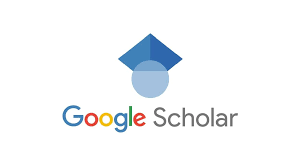PENGEMBANGAN DAN SOSIALISASI PENGGUNAAN APLIKASI BERBASIS ZERO BASED BUDGETING UNTUK INDUSTRI SEKTOR PARIWISATA DAN HOSPITALITY
DOI:
https://doi.org/10.61722/japm.v3i5.6399Keywords:
Android, financial application, Zero Based Budgeting, Zero Based Modeling, hospitality, MSMEsAbstract
The tourism and hospitality industry is a strategic sector that contributes significantly to regional economic growth. However, Micro, Small, and Medium Enterprises (MSMEs) in this sector still face substantial challenges in financial management, ranging from limited financial literacy and inefficient budget utilization to the lack of digital technology adoption. These issues result in low operational efficiency and weak business competitiveness. To address these challenges, this community service research developed an Android-based application by adopting the Zero-Based Budgeting (ZBB) and Zero Based Modeling (ZBM) approaches.
Android was chosen as the initial development platform, as it is the most widely used and accessible system among MSMEs in Indonesia. The main features of the application include zero-based budgeting, daily transaction recording, automated financial reporting, budget utilization notifications, and educational modules on ZBB/ZBM concepts. The development process was carried out through a participatory approach in collaboration with MSME partners in Bandung Regency (West Java) and Luwu Regency (South Sulawesi). The research methodology combined the ZBB application development framework for the tourism sector, the systematic waterfall model, and the analysis–design–implementation principles in digital application development.
Preliminary testing results indicate that the Android application successfully improves financial understanding, facilitates budget planning, and enables MSMEs to monitor cash flow in real time. Thus, the application functions not only as a financial recording tool but also as a digital learning medium that strengthens the sustainability and competitiveness of hospitality MSMEs in the era of digital transformation.
References
Batang, S., Abeh, Y. A., Wan, M., Wibawa, R., Mebang, D. N., Warman, W., … & Fitriadi, A. (2025). Analysis of budget utilization efficiency in public schools in Mahakam Ulu. Jurnal Riset Ilmu Pendidikan, 5(1), 138–147.
Beck, J., Rainoldi, M., & Egger, R. (2019). Virtual reality in tourism: A state-of-the-art review. Tourism Review, 74(3), 626–643. https://doi.org/10.1108/TR-03-2017-0049
Bitrián, P., Buil, I., & Catalán, S. (2021). Enhancing user engagement: The role of gamification in mobile apps. Journal of Business Research, 132, 170–185. https://doi.org/10.1016/j.jbusres.2021.04.028
Cokins, G. (2009). Performance management: Integrating strategy execution, methodologies, risk, and analytics. Hoboken, NJ: Wiley.
Cooke, J. (2012). Everything you want to know about Agile: How to get Agile results in a less-than-Agile organization. Cambridge: IT Governance Publishing.
De Waal, A., Hermkens-Janssen, M., & Van de Ven, A. (2011). The evolutionary adoption framework: Explaining the budgeting paradox. Journal of Accounting & Organizational Change, 7(4), 316–336. https://doi.org/10.1108/18325911111182368
Ekholm, B.-Ö., & Wallin, J. (2000). Is the annual budgeting really dead? European Accounting Review, 9(4), 519–539. https://doi.org/10.1080/09638180020024007
Fabozzi, F. J., Peterson, D. P., & Polimeni, R. S. (2008). The complete CFO handbook: From accounting to accountability. Hoboken, NJ: Wiley.
Hidayat, L., & Dahlia, D. (2023). Sistem informasi agenda kerja karyawan PT. Asuransi Bri Life Jakarta berbasis web. Indonesian Journal of Computer Science, 2(2), 95–103. https://doi.org/10.31294/ijcs.v2i2.2391
Huda, B., & Priyatna, B. (2019). Penggunaan aplikasi content management system (CMS) untuk pengembangan bisnis berbasis e-commerce. Systematics, 1(2), 81–91. https://doi.org/10.35706/sys.v1i2.2076
Jones, M., et al. (2017). Beyond ‘yesterday’s tomorrow’: Future-focused mobile interaction design by and for emergent users. Personal and Ubiquitous Computing, 21(1), 157–171. https://doi.org/10.1007/s00779-016-0982-0
Louis, D., & Müller, P. (2016). Android. München: Carl Hanser Verlag. https://doi.org/10.3139/9783446451124.fm
Lusardi, A., & Messy, F.-A. (2023). The importance of financial literacy and its impact on financial wellbeing. Journal of Financial Literacy and Wellbeing, 1(1), 1–11. https://doi.org/10.1017/FLW.2023.8
Mauko, I. C., Setiohardjo, N. M., & Noach, F. P. (2017). Pengembangan website Unit Penelitian dan Pengabdian kepada Masyarakat dan penerapan jurnal elektronik berbasis open source di Politeknik Negeri Kupang. Jurnal Ilmiah FLASH, 3(2), 100–107.
Mukti, A. R., Pratama, A., & Purwanto, T. D. (2024). Perancangan aplikasi Sijaspro di Jasdam II Sriwijaya berbasis Kodular. Jurnal Pengabdian Kepada Masyarakat Bina Darma (JPKMBD), 4(1), 43–49. https://doi.org/10.31294/jpkmbd.v4i1.2391
Munadiya, R. (2022). Isu keberlanjutan dan persaingan usaha: Kapan otoritas harus campur tangan?. Jurnal Persaingan Usaha, 2(2), 127–137.
Muyassaroh, I., Arsanti, M., & Hasanudin, C. (2022). Urgensi literasi digital bagi mahasiswa di era Society 5.0. Protasis: Jurnal Bahasa, Sastra, Budaya, dan Pengajarannya, 1(2), 81–90.
Nurbaiti, N., Asmuni, A., Soemitra, A., Imsar, I., & Aisyah, S. (2023). Behavior analysis of MSMEs in Indonesia using fintech lending: Comparative study between sharia fintech lending and conventional fintech lending. JPPI (Jurnal Penelitian Pendidikan Indonesia), 9(4), 92–99.
Pyhrr, P. A. (2012). Zero‐based budgeting. In J. W. Wiley (Ed.), Handbook of budgeting (pp. 677–696). Hoboken, NJ: Wiley.
Save, A. (2014). Marketing in a mobile-first world: Tackling the why and the how. Journal of Direct, Data and Digital Marketing Practice, 15(3), 202–212. https://doi.org/10.1057/dddmp.2014.8
Simarmata, J. (2010). Rekayasa web. Yogyakarta: Andi.
Stocchi, L., Pourazad, N., Michaelidou, N., Tanusondjaja, A., & Harrigan, P. (2022). Marketing research on mobile apps: Past, present and future. Journal of the Academy of Marketing Science, 50(2), 195–225. https://doi.org/10.1007/s11747-021-00815
Suryadi, A. (2018). Perancangan aplikasi game edukasi menggunakan model waterfall. Jurnal Petik, 3(1), 8–14. https://doi.org/10.31980/jpetik.v3i1.352
Voßemer, J., Gebel, M., Nizalova, O., & Nikolaieva, O. (2018). The effect of an early-career involuntary job loss on later life health in Europe. Advances in Life Course Research, 35, 69–76. https://doi.org/10.1016/j.alcr.2018.01.001
Wibawanto, W. (2017). Desain dan pemrograman multimedia pembelajaran kreatif, interaktif. Jakarta: Depublish.
Downloads
Published
Issue
Section
License
Copyright (c) 2025 JURNAL AKADEMIK PENGABDIAN MASYARAKAT

This work is licensed under a Creative Commons Attribution-ShareAlike 4.0 International License.











